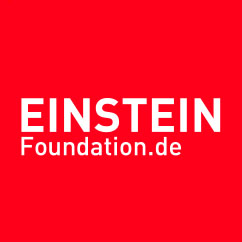How did the concept of impartiality emerge? Until now, impartiality has been attributed to the norm of independent observation that emerged in the empirical sciences in modern times. Einstein Junior Fellow Anita Traninger takes a different approach: The FU Berlin literary scholar argues that the term primarily reflects the increasingly public and written communication of science. In her new publication, she analyses this thesis on the basis of Spanish, French and German scientific debates.
»I question certainties«
My research requires me to rely on original sources that are not available in modern formats. That’s something that I truly enjoy. Of course many old publications are now available digitally, which does facilitate my work. But there are certain discoveries that you only make by picking up a book: sometimes prints are bound together, and it is only by accident that you stumble across something that suddenly sheds new light on your work. Those are serendipitous moments in historical research. I am also very moved when I find handwritten notes in a margin – readers who held the same volume in their hands centuries ago echo through those words.
In my current project, I examine the pre-history of impartiality as a concept. I find this topic especially interesting, because today the term functions as a given. It is also absolutely central to our identity and self-image as scholars and scientists. My research, however, shows that impartiality only started to gain momentum as a scientific ideal in the 17th century. Prior to that, science had managed to exist without much of a problem since Antiquity. And I can also show that impartiality did not emerge solely in conjunction with empirical research, as we are accustomed to believe. Instead, it started to appear in many areas simultaneously and establish itself as an independent ideal – for example in theological controversies, review systems, or in aesthetics.
With my research, I want to increase awareness of the fact that many of our supposedly universal values are still relatively new. I question these certainties by studying their history. It can be very illuminating. One basic assumption that remains widely accepted in European cultural history is that the Renaissance was the dawn of a new age of humanity that put an end to the “darkness” of the Middle Ages. Nonetheless, by looking more closely at a variety of sources, we can clearly see that many scientific methods and techniques from universities in the Middle Ages continued to be practised during the Renaissance. They can even be found in humanist works prized as the antithesis of scholasticism and its pedantry. The break was ultimately much less radical than it is made out to be.
It is an enormous privilege to be able to do research on such fascinating topics. There are a number of other obligations at the university, but I am able to define the main part of my work. The freedom that comes with academic research is a great privilege.


